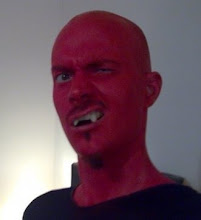The Yakuza
Made any later and Yakuza could have easily become straight-to-video fodder combining corn fed, muscle bound Americans with the exotic violence of the East - ninjas, samurais and kung fu masters. Instead as a 70s production The Yakuza enjoyed the period of American cinema after the war & western 50s and 60s and before the onslaught of the 80s blockbusters.
Starring Robert Mitchum in subdued mode, The Yakuza is a sombre picture all about age, consequences and the end of eras. In the same way as many westerns dealt with the end of the wild west and therefore of the cowboy, The Yakuza touches partly on the changes resulting from Japan’s part in the second World War. Mitchum plays an ex-army man Harry Kilmer who was stationed in Japan during the occupation; he saved the life of a Japanese woman and fell in love, but was asked to leave by her brother who returned, presumed dead, after the war and became a high-ranking yakuza. Decades later Harry is asked to return to the country to help out an old friend whose business dealings with the yakuza have turned sour and resulted in the kidnap of his daughter.
What follows is a tale swamped in regret and sorrow as Harry and his friends and acquaintances reflect on the past and on honour, duty and obligation, though the scenes of quiet contemplation are interspersed with bursts of violence in keeping with a thriller centered around criminal gangs.
The performances throughout are modestly impressive but the assured atmosphere that envelopes the whole production no doubt stems from the creative team of Paul Schrader and Robert Townsend writing and Sydney Pollack directing at the top of his game, the year before the excellent Three Days of the Condor, a team that would have had to work hard at the time in order to avoid producing a well crafted and mature thriller.
The Yakuza stands as testament to the sea change in American cinema between the decades and the almost mournful tone of the film retrospectively fits that short-lived era well.


0 comments:
Post a Comment